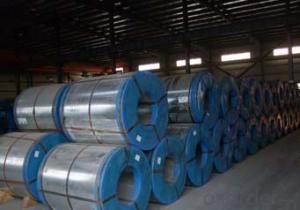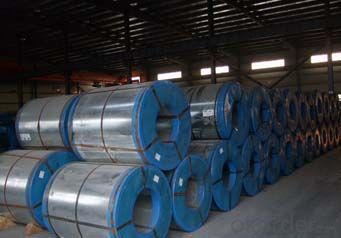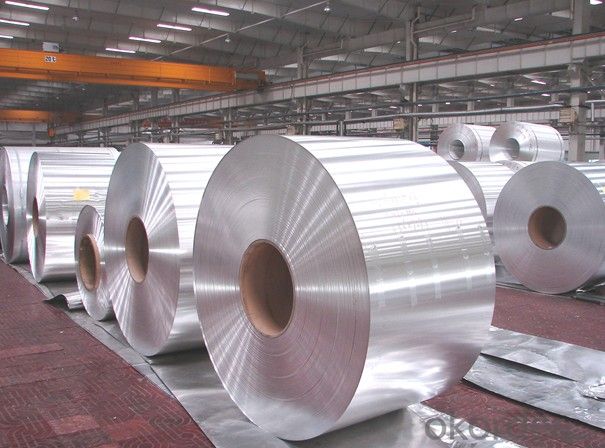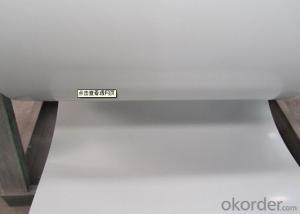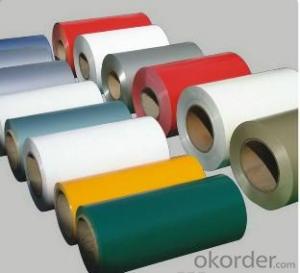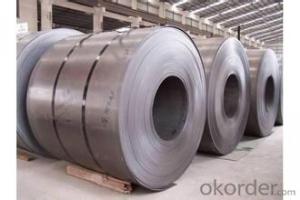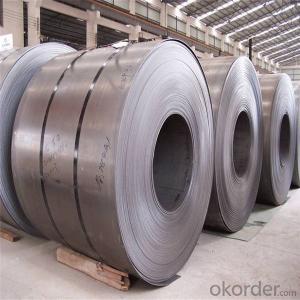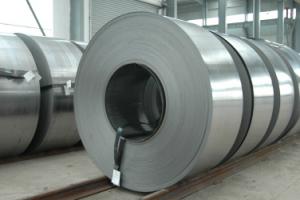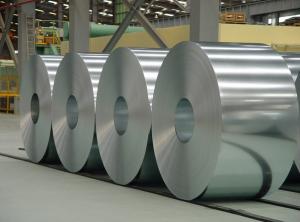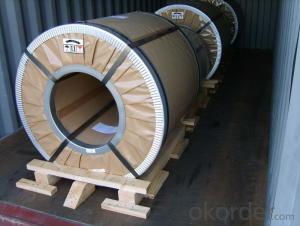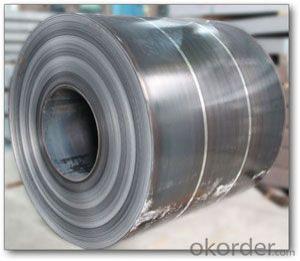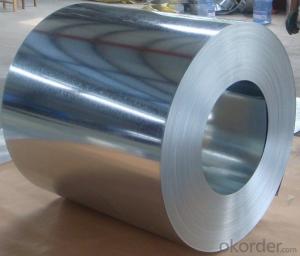cold rolled steel coils
- Loading Port:
- China Main Port
- Payment Terms:
- TT OR LC
- Min Order Qty:
- -
- Supply Capability:
- -
OKorder Service Pledge
Quality Product, Order Online Tracking, Timely Delivery
OKorder Financial Service
Credit Rating, Credit Services, Credit Purchasing
You Might Also Like
Specifications
1.Thickness:0.2-5.0mm
2.Width: 1000-1250-1500mm(Can be customized)
3.Length : Coil
4.Weight: Actual weight
Commodity | Cold Rolled Steel Coil |
Thickness | 0.2-5.0mm |
Width | 1000-1250-1500mm Or According to customer requirements. |
Material | Q195-Q345 / SPCC / SPCE / SPCD / ST12 / DC01-06 / ST14 etc. |
One pallet weight | Conventional : 6-8 tons Or 2-8 Ton According to customer requirements. |
Surface treatment | Oiled or unoiled as the requirement |
Packing | Seaworthy packing, each coil packed cold rolled steel coil, put 1 or more coils in one pallet, then packed with plastic membrane, then packed with pp bags (inside the bag is plastic membrane), last protect the corner with cold rolled steel strip. |
Supply ability | 5000 ton per month |
Delivery time | 10-25 days |
Application | Such as automobile manufacturing, electrical products, rolling stock, aerospace, precision instruments, food cans, etc. |
- Q: Can you reload spent casings if they are steel?
- Let me break it down for you. 1) There are two kinds of priming in current use these days -- you cannot tell from the outside which primer it is...only by looking inside the casing. If the casing has a single center primer hole, it is Boxer primed. If the casing has multiple primer holes, none of which is center, it is Berdan primed. Berdan and Boxer are the names of men who designed the priming systems.
- Q: I want to know because I'm going to Hershey Park on Wednesday and Steel Force looks about the same size, so, I wanted to know. It's not that Steel Force is too big for me.
- steel force breaks the 200ft mark and is a steel out and back roller coaster. Tidal force is a water ride that is about 100 ft tall. If you can do Steel Force then you should be able to handle anything at Hersheypark. the on;y ride they have bigger is the Kissing Tower
- Q: I need to identify a metal. It is rusty so I suspect it is either iron or steel. Since they both have similar densities and are magnetic, how do I tell the difference betweeen steel and iron?
- Steel is a refined, alloyed metal that is mostly iron. Iron, in a chemistry sense os simply Fe. In an industrial sense iron is pig iron commonly saturated with carbon, up to 4.5% and has other impurities like sulfur. Pig iron is brittle and should break rather easily, and bend very little. After a piece is broken look at the crystal structure, you should see rather small crystals. Most steel made for car body's, washing machines, file cabinets, low grade bolts and nuts etc. should flex and bend before breaking. Most steel made for things like cutting tools, axles, etc, is hardened and will chip and break rather than bend. Also you can try to heat the piece to a glowing orange temperature. It must be very hot. Cool it. If there is a lot of white flake scale on the piece it is impure and probably iron of some sort. In the end the only way exactly tell is have an analysis done and look at the chemistry.
- Q: How are steel coils inspected for coil set?
- Various methods and equipment are utilized to inspect steel coils for coil set. Coil set refers to the curvature or shape of the coil, which can affect its performance and usability in different applications. One way to inspect steel coils for coil set is through visual examination. Experienced operators or inspectors carefully assess the coils for any visible deformities or irregularities in their shape. This can be accomplished by unrolling a section of the coil and checking for signs of buckling, twisting, or unevenness. Visual inspection is a simple and cost-effective method to identify evident coil set issues. In addition to visual examination, more advanced techniques are employed to accurately measure and quantify coil set. One such technique involves using a straight edge or template. The straight edge is placed along the length or width of the unrolled portion of the coil, and any gaps or deviations from the straight edge indicate the presence of coil set. This method provides a more precise measurement of the extent and severity of the coil set. Another commonly used technique is the utilization of specialized tools like a non-contact laser measurement system. This system projects a line onto the surface of the coil using lasers and measures the distance between the line and the coil. Any variations in this distance indicate the presence of coil set. This method offers high accuracy and provides detailed data on the coil's shape and curvature. Other methods may involve the use of mechanical devices such as rollers or tensioners to unroll and measure the coil's shape. These devices exert controlled pressure on the coil to straighten it out, and any resistance or deviations encountered during the process serve as indications of coil set. Overall, the inspection of steel coils for coil set involves a combination of visual examination and precise measurement techniques. These methods aid in identifying and quantifying any deformities or irregularities in the coil's shape, enabling manufacturers and customers to make informed decisions about the usability and quality of the steel coils.
- Q: How are steel coils used in the petrochemical industry?
- Steel coils are commonly used in the petrochemical industry for various applications such as manufacturing pipes, tanks, and pressure vessels. They serve as raw materials for fabricating these essential components used in the transportation, storage, and processing of petrochemical products. The strength and durability of steel make it an ideal material for withstanding harsh environments and high-pressure conditions, ensuring the safety and efficiency of petrochemical operations.
- Q: what is the chemical process that makes steel harder when it is heated and cooled rapidly?what does the heating of it do to the atoms?what does the cooling of it do to the atoms?what makes tempered steel so strong compared to untempered steel?
- You can't temper all steels. Generally the material must be a high-carbon or tool steel. Different alloys temper differently, and tempering is usually done to get a specific set of characteristics, so you must know what you are working with and use the right methods and temperature. If you do it wrong, the material may be hard but too brittle for the purpose or have other issues. It can be simple, such as heating to a dull red, carbonizing the surface (use an acetylene rich flame until it blackens the surface) and oil quenching. Do that to a piece of tool steel (like a screwdriver) and it will case (surface) harden it to the point you can't scratch it with a file. Tempering changes the way the molecular structure in the metal is linked and oriented.
- Q: What are the various surface finishes available for steel coils?
- Steel coils offer a range of surface finishes, each with its own properties and uses. Some commonly used finishes include: 1. Hot rolled: Steel is rolled at high temperatures, resulting in a rough surface. This finish is great for structural applications like construction materials and industrial machinery. 2. Cold rolled: Steel is rolled at room temperature, creating a smoother surface. It is commonly used in automotive and appliance manufacturing due to its superior finish and accuracy. 3. Galvanized: Steel is coated with zinc to protect against corrosion. Galvanized coils have a shiny appearance and are suitable for outdoor applications such as roofing and fences. 4. Electro-galvanized: Coated with a thinner layer of zinc through an electroplating process, these coils offer good corrosion resistance. They are commonly used in electrical appliances, automotive parts, and construction. 5. Pre-painted: Coated with paint or polymer film, pre-painted coils provide both corrosion protection and aesthetic appeal. They are extensively used in construction for roofing, cladding, and wall panels. 6. Stainless steel: Stainless steel coils have unique properties, including corrosion resistance, heat resistance, and chemical damage resistance. They are ideal for industries like food processing, medical equipment, and marine applications. These examples showcase the variety of surface finishes available for steel coils. The choice of finish depends on factors such as the intended use, desired appearance, and level of corrosion resistance required.
- Q: I work at a tool store. I told my boss last week we needed more pruning shears so he did get more of all kinds. Thing is out of all of the shears he brought Two of different kinds say they are made out of Japanese steel. I have never heard of Japanese steel so now i ask you (the public) whats the difference between it and steel from the US or any other country? Those shears are worth more then the ones he gets from Mexico and China and even more than Black and Decker, Fiskars, etc but not more then Corona brand ones.
- After WWII, The United States in order to help the Japanese get back on their feet, sent over the equipment needed to make the newest types of foundries available at the time. While this was a big boon for the Japanese, this meant that most of our foundries were using the older technologies. Japanese Steel then had a bit of a edge on purity than ours did and when you have a purer steel, you have a better product. Since then, they've stayed at the top of the game when it comes to steel. Not only because of the equipment which we have caught up with them on and stay with them on, but because they also have a stronger tradition regarding steel. They have made quality steel blades that were decades ahead of what the West could produce. So you couple that quality of metallurgy with modern techniques we gave them, they took steel making and and ran with it to be one of the top steel producers in the world. Don't get me wrong. We in the US can make Steel as well as they can. But we have ranges of steel. You can get a steel tool that is as good as a Japanese offering (if not more so) but at the same time you can also get a steel tool that is well...Dollar Store crap that'll break if you look at it wrong. While their best may not be better than our best, their worst is often far better quality than our worst. Their lower end products are often our medium grade tools and blades.
- Q: I downloaded broken steel, the notice of my level cap raising was shown, but after reaching the Jefferson Memorial (when you are supposed to activate the purifier) if I kill Colonel Autumn, then Lyons simply says that we must secure the area, and I can't complete the mission. If I let Autumn live, then she gets stuck in a loop saying Steel be with you over and over. Has anyone else experienced this/how can I fix this? I paid $10 for the expansion and I'm getting ripped off.
- for my area i've got in no way stricken with achievements. Hell, i've got in no way logged into domicile windows stay in six months for the reason that this game got here out. i do no longer even have the disk in my laptop. I merely launch by FOMM and FOSE. you already know what achievements i like, making mods. human beings love a number of my mods, and to me this is a real success. the sport is merely game, enjoying it would not recommend something, this is different from you lived in SE Asia for 6 months in a shack with out working water with a warm distant places female you met on line and then introduced her and your toddler back to stay inclusive of your mom, no, you haven't any longer achieved something different than to be entertained by skill of somebody else's success. Oh, specific you have solved some mysteries, explored some areas and located some issues that have been hidden, yet you likely regarded up on line the places for lots of the stuff you discovered besides. Oh, and to respond to your question: Bethesda's engaged on it, alongside with fixing the a million.5 replace that kills mods with outdoors adjustments by skill of making the sport crash on shop.
- Q: What is the material of steel coil 08F and what brand can be used instead?
- The high quality carbon structural steel, carbon steel, steel commonly referred to as. Steel for the manufacture of parts for various machines.1.08 and 08F steel is used for rolling thin plates, deep drawing products, oil drums and high-grade enamel products. It can also be used for the manufacture of pipes, gaskets and core parts with low strength requirements, carburizing and cyaniding parts, welding electrodes and so on.2.10 and 10F steel, use cold pressing deep drawing products below 4mm, such as deep drawing vessel and shell. It can also make boiler tubes, oil drum covers and steel strips, steel wires, welding pieces and mechanical parts.3.15 and 15F steel are used to make carburizing parts, fastening parts, die forging parts and low load parts without heat treatment, such as bolts, screws, flanges and storage tanks for chemical machinery, steam boilers, etc..
Send your message to us
cold rolled steel coils
- Loading Port:
- China Main Port
- Payment Terms:
- TT OR LC
- Min Order Qty:
- -
- Supply Capability:
- -
OKorder Service Pledge
Quality Product, Order Online Tracking, Timely Delivery
OKorder Financial Service
Credit Rating, Credit Services, Credit Purchasing
Similar products
Hot products
Hot Searches
Related keywords
